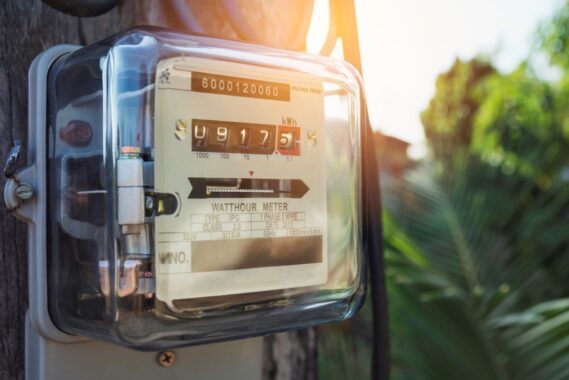Connectivity management of smart meters is a top priority for Distribution System Operators (DSOs) to optimise operations. Security is at the heart of the whole chain protecting the device identity as well as its lifecycle and data exchange at rest and in motion. In this blog, we delve into efficient connectivity and security management for smart metering.
Why smart meters need efficiency, resiliency, and scalability for their connectivity
Smart metering is crucial to the energy transition agenda because it enables real-time monitoring and management of energy consumption, leading to more efficient energy operations and reasonable use, and facilitates the integration of renewable energy sources. The new generation of meters, Advanced Metering Infrastructure (AMI), are designed to optimise monitoring and support distribution.
The adoption of smart meters has become a reality across the globe and is set to grow over the coming years. In fact, by 2033, Transforma Insights have projected that one-third of the 3.4 billion smart meters globally, will be connected to the cellular network, driven by the rise of 5G LPWA in smart water and gas metering. In the context of high volume roll-outs, it is imperative that the connectivity solution is scalable.
Enlit Europe 2024 was rich in new products, in particular with OEMs showcasing their latest AMI solutions that are able to assure a continuity of service for operations, as well as for the end-user, based on solid and efficient connectivity wherever the endpoint is. Players also emphasised the need for durability as device lifetime is expected to reach up to 20 years. Flexibility and resiliency of remote connectivity management has been heavily appreciated in this context of low accessibility.
The industry will adhere to a security by design approach
Smart electricity, smart gas and smart water are all classified as critical infrastructure globally. Findings from Thales’ 2024 Data Threat Report (CNI edition) reveal that an overwhelming majority (93%) of organisations in the Critical National Infrastructure (CNI) sector observed an increase in cyber-attacks over the past 12 months.
Moreover, the report found that despite the increase in sensitive data being moved to the cloud, only a small percentage of this data is encrypted, adding a high number of endpoints that are not secured, putting sensitive information at significant risk.
Security of the complete supply chain was a hot topic during Enlit, with focus placed on the critical need for robust cybersecurity measures in IoT deployments with a holistic and Security-by-Design approach, particularly for smart metering infrastructure. We see a lot of regulations deployed around the globe trying to tackle the protection of the complete system, for example, in the EU we saw the publication of the Cyber Resilient Act at the end of October 2024. As smart meters become integral to managing utilities, ensuring their security is paramount.
Our vision for a connected future
At Thales, we are committed to supporting a future where IoT and data solutions drive both operational efficiency and security resilience across industries. This vision is underpinned by our dedication to innovation, safety, and trust, creating a safer, more connected world where IoT technologies enhance the quality of life and operational capabilities.
This future is only possible with a security-first approach. Our team continuously innovates to stay ahead of emerging threats and to provide cutting-edge solutions for secure IoT connectivity. This ongoing innovation is crucial for maintaining the security and reliability of smart metering systems and other forms of critical infrastructure.
How Thales empowers the smart meter industry
Thales Adaptive Connect is an end-to-end solution to manage globally and efficiently the cellular connectivity of the device:
- Thales eSIM: a standardised & certified common criteria EAL4+, defined as a root of trust for the security perspective of the device, its identity, and the data.
- Adherence to new GSMA IoT Standards SGP.32 with an adaptable connectivity solution: Thales continues to lead in the implementation of IoT standards, particularly with the adoption of eSIM (SGP.32) standards. These standards are vital for scalable and secure IoT deployments, ensuring that devices can be managed and updated remotely, automatically, and securely throughout their lifecycle. Thales’ pioneering role in this area reinforces its position as a trusted leader in IoT.
Thales’ security-by-design approach addresses the cybersecurity concern of smart meters endpoints by providing comprehensive IoT Security Manager that protect devices and data from edge to cloud.
Thales is also deeply involved in the future of identity security, investing massively in resources and equipment for the Post Quantum Cryptography.



